#Alexithymia
Text

I find it hard to tell what I'm feeling sometimes, but I know that Soup Brain means I should probably rest
900 notes
·
View notes
Text
please stop associating the term neurodivergent with JUST autism and adhd. like please. there are so many ways to be neurodivergent and it’s not fair to assume that it’s just about autism adhd.
#inclusivity would be GREAT#dyscalculia#dyslexia#alexithymia#dyspraxia#auditory processing disorder#sensory processing disorder#tourettes#CAN YALL SEE THESE OTHER ONES TOO!!!#nova rants#actually avpd#synesthesia#neurodivergent#aphantasia#im only tagging some stuff but feel free to add more#hyperlexia
2K notes
·
View notes
Text
staring at a blank page, burning with emotion
having no way to articulate it.
if there ever was hell on earth, i think that'd be it. trapped in your own mind with raging fires and no way to show everyone that you're aflame.
#autism#asd#actuallyautistic#actually adhd#being autistic#neurodivergencies#adhd#neurodivergent#its the neurodivergency#actually autistic#alexithymia#neurospicy#neurodiversity#neurodivergence#audhd#poetry#spilled poetry#poetic#words words words#prose#poet#poems#spilled words#spilled thoughts#spilled writing#spilled ink
429 notes
·
View notes
Text
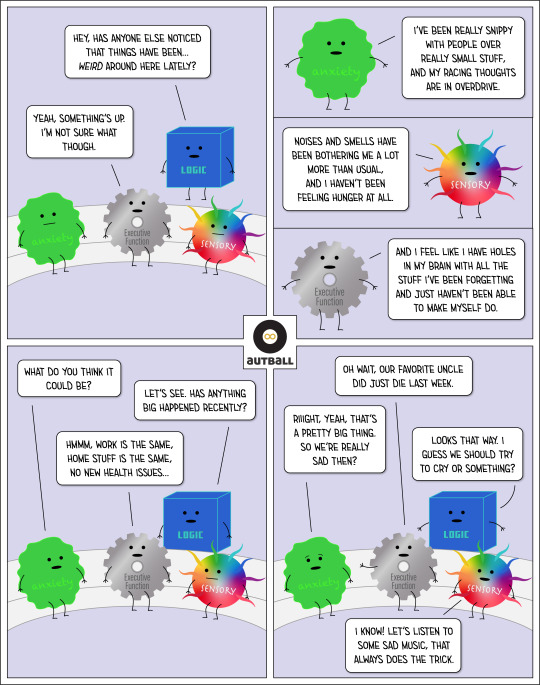
Who else has to use their powers of deduction to figure out what they’re feeling?
It could be from something called Alexithymia. It can happen to anyone, usually when trauma is involved, but it’s a common experience for Autistic people for a couple of extra reasons.
One is that it’s linked to struggles with interoception, and I don’t know if you’ve heard, but Autistic people do tend to have some differences in sensory processing. 🙃
The other is that we’re very often gaslit when it comes to our feelings and experiences, starting from a very early age, which leads to doubting our own reactions to things and never learning how to process, or even recognize, our emotions or their connection to physical sensations.
This is how it often goes for me. I notice physical, sensory, and cognitive changes first and have to work my way backwards to see if there are any big feelings behind it. (And yes, I really did have to do this even when my uncle died.) I might then need help accessing those feelings in order to let them out, which is where music or certain movies come in handy.
What about you? Do you sometimes have to backwards engineer your emotions? And what’s your go-to for bringing them to the surface so they can come out?
#actually autistic#autistic#autism#autistic problems#autistic experiences#autistic artist#autistic feels#adhd#audhd#neurodivergent#alexithymia#autistic things
802 notes
·
View notes
Text
Having autism/ alexithymia is like "You made me feel something and in 3-5 business days when I figure out what it was, then you'll be sorry!"
685 notes
·
View notes
Text
that scene in season 1 where teruki hanazawa exorcises ekubo mid-sentence... and shigeo's eyes widen in shock?
i really want to talk about it, specifically the explosion meter accompanying it.
normally, when the teenager's emotions aren't obvious to the audience, that meter relays to us a sense of what he is actually feeling. but we cannot trust the meter here. we see it jump up a few points at teru's 'psycho wave' sending the sleazy ghost to the shadow realms, and remain steady at 50% upon shigeo's recollections of the spirit's unsavory nature. the boy outright tells teru that he isn't bothered. and it's funny!
but shigeo isn't being honest with himself here either.
his face briefly gives his feelings away before resettling into its normal flat affect. (to be fair, what he's really feeling isn't teru's business. this kid is trying to provoke a fight out of him, after all.) after he's basically tortured into exploding, shigeo spends three hours in the pouring rain, searching everywhere for ekubo.
three. hours.
these are not the actions of someone who isn't bothered. letting himself get drenched to the point of sickness,


even though he literally holds the power to shield himself from it,
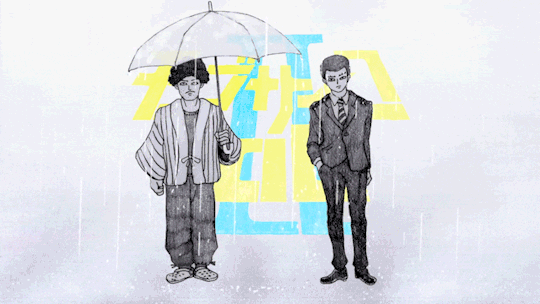
reads to me like unconscious self-punishment for allowing all this to happen.
after a large chunk of his short life spent denying and fearing them for good reason, shigeo's first impulse is often not to use his psychic powers -- even after his integration at the story's end. i wish this was discussed more, because many watchers cannot fathom why this boy with world-breaking psychic abilities would ever refuse to use them.
also: the explosion meter lying to us / representing shigeo's detachment from his own emotions alexithymia may occur elsewhere in the series as well, especially when he's not close to an explosion; i'm reminded of the tiny dent ritsu's provocation of him makes in it a few episodes later.
#mob psycho 100#mp100#mp100 meta#alexithymia#unreliable narrator#self blame#self flagellation#mp100 s1 rewatch#trauma#tw death mention#this boy often does not think to use the power he has#it's something i wish was talked about more#there are good reasons why#he won't use his powers to solve his problems#even when they actually can and he probably should#because they're capable of doing and have done real fucking damage#life on hard mode on purpose?#i think he'd be even less comfortable using them after outwardly fighting with himself#at least for some time afterwards#this should be another post#700#kageyama shigeo#分析
718 notes
·
View notes
Text
The beginner autistic guide to common terms in our community (with extra context!).
*Disclaimer, I’m not a professional. This is just knowledge from my experience as an autistic person. Please feel free to correct anything :)
These definitions will include some of my own opinions and thoughts, especially on the more controversial terms. This is simply to help better prepare new autistic community members for conversations they become engaged in. Having all the perspective and context you can have can be very helpful when moving into new social spaces.
Autism (Or Autistic Spectrum Disorder, ASD): A neurodevelopmental disorder that is present from very early childhood. It’s mostly recognised through difficulties with social interaction and restricted and/or repetitive behaviours. The way it is referred to as “Autism Spectrum Disorder” is specifically referring to the fact that autism presents in countless ways. There are common traits and patterns, but the severity and complexity of those traits and symptoms is infinite.
NOTE: This does not mean that ‘everyone is a little bit autistic’. You are either autistic or you are not. It just means that if you have autism, it may present very differently to other autistic people you know.
Asperger’s Syndrome: Asperger’s syndrome is usually considered an older term for a ‘subtype’ of autism. The term is considered outdated by the DSM-5 and no longer used in that document. However it is still used in a lot of other countries. Now it is becoming more socially known that ‘Asperger’s syndrome’ is just a specific presentation of autism. Many autistics don’t like the use of the word ‘Asperger’s’ because of a couple reasons:
The term has a long history with NAZI’s and eugenics.
The term seems to basically mean ‘high functioning’ autistic, which simplifies the condition.
Asperger’s Syndrome is defined in a very similar way to autism, however people with “Asperger’s’ may be described as ‘gifted’ or ‘intellectual’.
It’s important to note that many people still identify themselves with the term ‘Asperger’s’. While it is good to be educated and up to date with terminology, some people have identified with this term their whole life and it’s not wrong to use the term for one-self. But either way, I do encourage you to do more research if you are comfortable.
Neurotype: Can be basically defined as the type of brain function one has. Some people consider autism a neurotype, and then neurotypical as another neurotype. However, many people claim that autism is ‘just another neurotype’. This is a harmful way of thinking about autism because autism is a disability. Labelling it as a ‘neurotype’ belittles all the struggles autistic people have that make them disabled. Autism is a spectrum and so some autistic people may not really consider themselves disabled, but many do.
Neurotypical (NT): A non-autistic person with no other mental conditions.
Allistic: A non-autistic person who can still have other mental conditions, such as depression or ADHD.
Neurodivergent (ND): Traditionally ‘Neurodivergent’ has been used to mean either autistic or ADHD. However in some contexts it is used to mean someone with any mental condition, including personality disorders or mental illnesses such as depression and anxiety.
Neurodiversity: a term used to describe the fact that there are many neurotypes in the world. It is used to imply that differences in brain development and function should be accepted as relatively normal. I think this is a good sentiment, but that some neurotypes should still be considered disabilities as well as a neurotype, so as not to diminish the struggles specific neurotypes go through.
High functioning/Low functioning: The labels of functioning are terms used to describe how independent an autistic (or other kind of disabled) person is able to be. Many autistics do NOT like the use of these terms for a couple reasons:
It tends to focus on the way an autistics disability affects the allistic people around them.
It simplifies the experience of the individual with autism to how independent they are, and is also not very descriptive for anyone trying to help the said autistic person.
High needs/Low needs: These are labels used to describe how much assistance an autistic (or other kind of disabled) person may need. It is slightly preferred by autistic people as the language is more centred to what the autistic person needs, rather than how independent they can be.
NOTE, many autistic people would argue that these terms are basically the same as high functioning and low functioning. I personally consider it to be best to just state someones highest needs or difficulties. For example “Olivia is nonverbal and highly sensitive to light and noise.”.
Masking: Masking is the act of hiding ones autistic traits to appear to be neurotypical. Masking is often a survival strategy developed by autistics to evade bullying or isolation. Masking can include suppressing the urge to stim, forcing oneself to make eye contact, learning how to ‘properly’ execute facial expressions, studying body language, etc. Masking can be an extremely vital skill for autistic people, but when an autistic person has to mask for long periods of time it can lead to negative consequences such as burn out or meltdowns. Masking can also be used in the context of other disabilities, such as ADHD.
Scripting: Scripting is a form of masking, when an autistic person pre-plans or practices responses or entire conversations. You may have a script you unconsciously follow for questions like “how are you?” Or “how is work?”, etc. It may be inspired from TV shows, movies or observing other people interact.
Burn out: Burn out is when an autistic person reaches their limit and has decreased energy for an extended period of time. Burn out may last anywhere between a couple days or a few years. Burn out is often caused by excessive masking, but can also be caused by repeated rejection, bullying or other mental conditions. Burn out is not the same as depression, but it can co-exist with depression.
Meltdown: A meltdown is when an autistic person experiences what might look like a ‘tantrum’. The person may be very angry, yelling, punching or hitting things (or themselves). They may be aggressively stimming or humming to themselves. A meltdown, internally, feels as if you are completely filled with negative energy, as if you might burst. It can feel like extreme irritation, or anger, or shame. Meltdowns can be caused by any number of stressful situations. For an autistic person this can be having a lot of social events, their routine being disrupted, having to eat foods they don’t like, being overstimulated, or even just negative social interactions.
Shutdown: A shutdown is very similar to a meltdown, in how it can be caused. For me personally, I tend to have a shutdown if I am not in a safe place to have a meltdown. From the outside it looks very similar to dissociation, and it can co-exist with dissociation. It typically feels like you are shutting down, turning off. You emotions were about to burst and then you just went numb. You may be unable to move, or go non-verbal. You may be crying quietly or you may simply just very suddenly feel the need to go home.
NOTE: Meltdowns and shutdowns can appear to feel like a panic attack, but they are different. Panic attacks come from intense feelings of dread or doom. Meltdowns and shutdowns come from repeated, or intense, stressful situations for an autistic.
Hypersensitive: Hypersensitivity is when the brain processes sensory input (such as touch, taste and smell) as much more intense than a neurotypical person would. This can mean that a slight cold breeze may feel painfully cold. Or looking outside a window can hurt ones eyes because it feels too bright. Or having to wear specific textures to stay calm.
Hyposensitive: Hyposensitivity is the opposite of hypersensitivity. It is when your brain inteprets sensory input as much less intense than a neurotypical would. Ways this can present in an autistic person include not realising when they hurt themselves, having a high pain tolerance, being unaware of temperature changes, etc. You may also not recognise your bodies hunger cues, dehydration or need for sleep.
NOTE: An autistic person can experience both hypersensitivity and hyposensitivity. It can also fluctuate day-to-day.
Sensory Processing Disorder (SPD): SPD is basically the term for experiencing lots of variation in your sensory input. It is similar to Auditory processing disorder. Which is where your hearing is technically fine (you aren’t any form of deaf), but you have trouble distinguishing what specific sounds are, or listening to one, important sound, in an area with lots of different noises (for example, being unable to understand what someone is saying next to you, because the TV is on.)
Overstimulation: This is when an autistic person has been experiencing too many different sensations at once, or for an extended period of time. This may be caused by too many noises happening at once. Or even just one annoying sound repeating for a long time. It can also be triggered by touch, taste, sight and smell.
Executive function/dysfunction: Executive function is the term used to describe how the brain initiates tasks. For neurodivergent folk, our executive function is often dysfunctional. This means we can often find it difficult to start new tasks. A way you may experience it is when you are sitting down, you may be screaming internally that you need to go and get some food, but your body seems unwilling to co-operate. Having executive dysfunction does not mean you are lazy, or do not want to do the task, it means you may be unable to do the task.
Autistic intertia: Autistic inertia is related to executive dysfunction, because it is a term that helps describe how autistic people struggle to switch or initiate tasks. “ An autistic at rest remains at rest, and an autistic in motion remains in motion”.
Special interest/Hyperfixation: A special interest is a extremely long term interest/obsession with a particular topic. An example might be being really into pokemon. Learning all the different types of pokemon, playing all the games and collecting heaps of merch. A hyperfixation is a more short-lived interest that can be destructive in it’s severity (for example, it might get so extreme that it’s the only thing you can think about, to the point where you neglect your needs). Special interests are less likely to be destructive. But hyperfixations can be healthy and normal too.
Stimming: Stimming or self stimulation is the act of doing repetitive movements to help self regulate. Stimming can look like spinning, chewing, flapping hands, dancing, foot tapping, pen clicking, touch soft fabrics, using weighted blankets, lighting candles, eating crunchy snacks, etc. All of these forms of movement or repetitive sensory input can help us regulate our emotions better, prevent a meltdown or shutdown, or focus on a task easier.
NOTE: Echolalia is another term you may hear. It is a form of stimming in which an autistic person repeats sounds/phrases over and over.
ADHD: Attention-deficit/hyperactivity disorder is a neurodevelopmental disorder like autism, but it affects the brain in different ways. It often presents as having difficulties with paying attention, regulating emotions and hyperactivity (or, alternatively, it can present as being inattentive).
Savant or Savant syndrome: A condition when someone with some type of significant mental disability is an expert/’savant’ in a particular field, to the point of surpassing neurotypical experts. An example might be having photographic memory, or being able to learn languages extremely easily, or being an extraordinary mathematician. Autistic people often don’t like to hear the term ‘savant’ as we are often only valued by ‘society’ if we are savants. And if we are not, then we are often treated as lesser. This is kind of a form of eugenics.
Eugenics: Eugenics is a philosophy or belief that we can selectively breed humans to ‘improve’ humanity. Or create the ‘perfect race’. This was an idealogy practiced by Adolf Hitler during WWII, which lead to the holocaust. Eugenics is often a subtly underlying philosophy behind many statements that, on face value, seem relatively harmless. For example - “autism is the next step in evolution” is currently a popular statement. However, this implies that every other neurotype is not an improvement, which therefore implies that being autistic is superior. This would be considered a form of eugenics. Eugenics is considered a horrible philosophy because it encourages people to look down on others and dehumanise anyone not like themselves.
Co-morbidity: A co-morbidity is the term used for a condition that is regularly seen in conjunction with another condition. For example, autism and ADHD are often seen together. However, it can also be used to simply describe someone who has more than one condition (physical or mental).
AuDHDer: Someone with autism and ADHD. Just a shortened way to refer to people with both disabilities.
Selective mutism/Situational mutism: When an autistic person (or other neurotype) experiences periods of being unable to speak or communicate. This can often occur in stressful situations, like before tests or during doctors appointments. It is officially referred to as ‘selective mutism’ but many are trying to change it to ‘situational mutism’ as the individual does not willingly choose when they go non-verbal.
Alexithymia: Alexithymia is typically described as the inability to define and/or describe ones emotions. So you may often feel a type of discomfort, but not be able to label what it is. Not being able to distinguish between anger and irritability. Or not knowing if you feel sad or confused. It can make seeking professional help for many conditions really difficult, as you are unable to put your experience into words. It can also be similar to hyposensitivity in the way that it makes it difficult to understand what you body is feeling.
Dyspraxia: Dyspraxia is a disorder that affects co-ordination, movement and balance. It can make things such as sports, driving, cooking and writing difficult. It is fairly common in autistic people.
Prosopagnosia: The inability to recognise/remember faces. It is more common in autistic people.
Synesthesia: Synesthesia is when one form of sensory input is sometimes also experienced as another. For example, someone with this condition may see colours when they hear someones name. They may hear a song and get a taste in their mouth. This is also more common in autistic people.
FINAL NOTE: Autism is a spectrum and you may not experience all of these different terms, or you may not experience them in the way I described them. That does not mean you aren’t autistic. This is not a diagnostic tool. This is simply a guide to learning the terms you may often hear when discussing autism.
#autism guide#autism#ASD#autism spectrum disorder#terminology#autistic terms#definition#neurodivergent#neurodiversity#allistic#aspergers#alexithymia#prosopagnosia#dyspraxia#actually autistic#synesthesia#auDHD#ADHD#autistic inertia#situational mutism#selective mutism
1K notes
·
View notes
Text
hm. gotta be honest, i don't understand why people characterize donnie as hiding his emotions in fandom. I feel like, maybe it's just a misunderstanding of autism in general? so here, have an internet-speak version of a character analysis:
first, you guys need to know that alexithymia makes it so you're not processing your emotions. which can fool you into thinking you don't have them at all, even if you're actively demonstrating emotions. and this can contribute to flat affect, especially if you only have a flat affect on occasion.
I would not say it's common for people with alexithymia to be deliberately hiding emotions. I'm not even sure it's possible for a lot of us, honestly. if all I can identify is "bad," at best, how am I supposed to smoothly hide my emotions behind an inscrutable expression? if that happens, it's not on purpose.
donnie definitely has alexithymia. see:
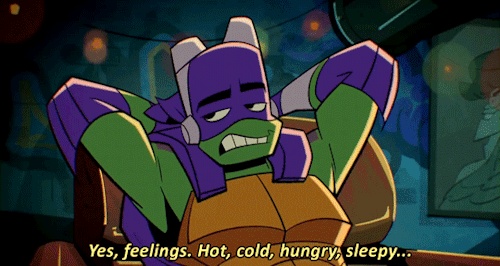
donnie has never once in canon tried to hide his emotions, at least to my knowledge. he never shows signs of being embarrassed by genuine emotion- surprised, maybe, but not embarrassed. hiding them is not something someone whose: "oh, uh, I'm really... sad?," the best he can do to mimic an emotion he's not feeling, would be able to do. he's canonically a terrible liar, too: "what??! I said mystic-free!!"
if nothing else, "I don't normally feel things but that one got through" should be an indicator that he's not hiding his emotions. it's, again, not that he isn't *having* them (he so is) but that he's not *processing* them as emotions.
I'm not sure if this is just another "allistic and autistic people have a serious communication barrier where both sides fail to understand the other," or what. I would just love to stop seeing that characterization in fandom 😅 also GIFS! to prove my point. a character who was unfeeling/deliberately hiding their emotions would not be like... this whole situation:









#rottmnt#donnie#character analysis#fandom#actually autistic#autistic#donatello#autistic donnie#rise of the tmnt#rise of the teenage mutant ninja turtles#alexithymia
639 notes
·
View notes
Text
shout out to everyone who has trouble identifying their emotions. who struggle putting their thoughts into words. who have a hard time communicating what's wrong because their thoughts are more like abstract concepts than anything tangible. who take hours or even days to approach issues because you werent even aware you were upset to begin with, or even understood what was wrong.
#bo posting#alexithymia#im stuck in a loop of feeling terrible about something but knowing i cant possibly explain what it is#its just big and bad and directed at a thing#vut i dont know how to word it#bevause i dont know exactly what the feeling is#god i hate this
261 notes
·
View notes
Text
Why it's hard for schizophrenic people to get treatment and diagnosis for physical health problems:
• Having "schizophrenic" in our charts makes a lot of medical professionals automatically not believe us. Especially if it is a problem that they can't instantly see themselves. They may think we are either delusional or having some kind of tactile hallucinations. They could see it more as a "psychiatric problem" rather than the physical medical problem that it is.
• If you have flat or blunted affect, they may not believe you, especially if you are describing pain. They have the expectations that you would be screaming, crying, grimacing, etc. When you are straight faced and monotone and say "I am in extreme pain right now" they will likely not believe you. And this paired with medical professionals views of chronic pain just makes them not believe you even more.
• Alexithymia makes describing your symptoms very hard, and even harder to describe how the symptoms affect you. The medical professional goes off of what you tell them, if you are vague or don't have the words, they will not understand you or not believe what you are describing. Either way that will hinder your road to treatment and diagnosis.
• Having memory problems, or trouble keeping track of things can also hinder your care. If you can't remember, or even remember to write down how often a symptom occurs, how long it lasts, how it felt in the moment, and how it impacted your life at the time, they may once again not believe you. Diagnosis often requires some sort of timeline or prevalence of symptoms, and not keeping track of that could keep you from diagnosis.
• They may avoid prescribing pain killers (even if you need it) because the fact that schizophrenic people are more likely to abuse drugs than the general population. And while that fact is true, it doesn't mean that someone in extreme pain does not deserve the right to pain killers just as much as anyone else who needs them.
• Being part of a disenfranchised group while also being schizophrenic can have compounding affects on your physical health treatment. Being low-income, being a person of color, being assigned female at birth, being transgender, being intersex, any other disenfranchised group or any combination of these will impact how you are treated by the healthcare system.
• Fear of medical professionals, or fear of Dr.s offices can impact the quality of your visit. You may feel too frightened to tell them how you really feel, you may just completely avoid going into the building at all. This can happen to anyone but is especially common for schizophrenic people due to our paranoia, inability to advocate for ourselves, lack of self esteem, historical medical abuse or personal experiences with medical abuse. Plus we can have doubts about the quality of our care because of any of the other reasons listed above.
And all this occurs while we as schizophrenic people, are at higher risks of several physical health problems (you can read about it here):
#i will make a part 2 on how i personally deal with these issues#this itself is just to raise awareness#schizophrenia#tw medical abuse#schizophrenia stigma#sanism#flat affect#blunted affect#memory problems#memory issues#alexithymia#medical abuse#medical neglect#tw healthcare#tw drs#tw painkillers#tw medication#tw drug abuse
412 notes
·
View notes
Text
Alexithymia

I CAN Network Ltd
#neurodivergence#neurodiversity#actually neurodivergent#alexithymia#alexithymia explained#I CAN Network Ltd (Facebook)#feel free to reblog/share if you’d like#tw bright colors#tw eye strain
267 notes
·
View notes
Text
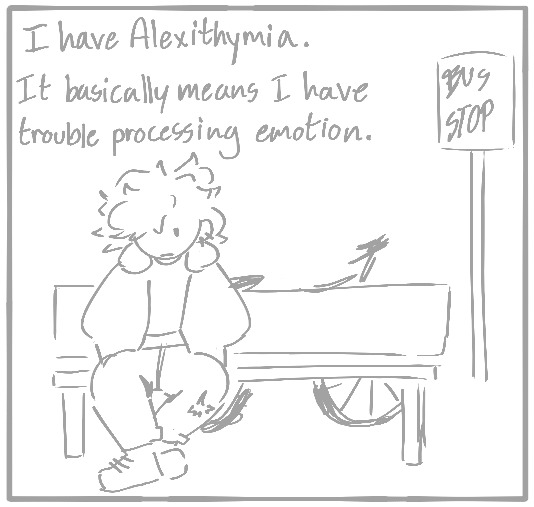


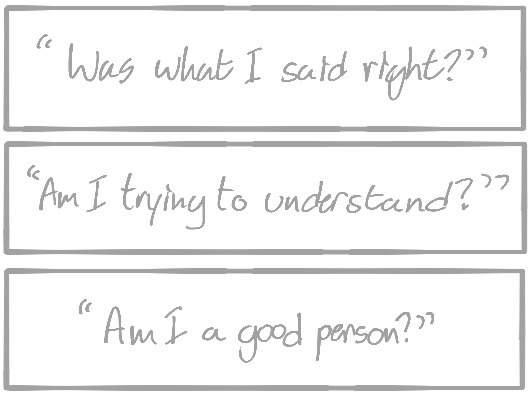
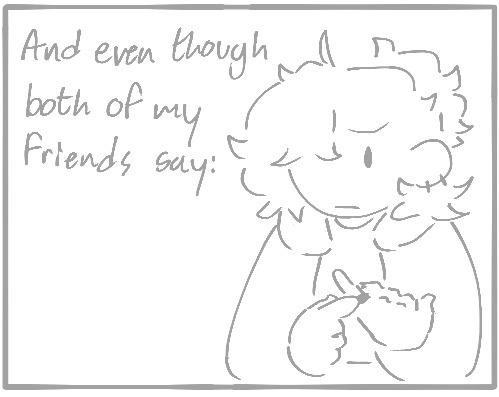
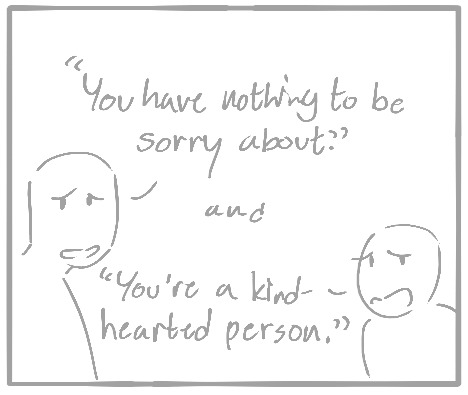
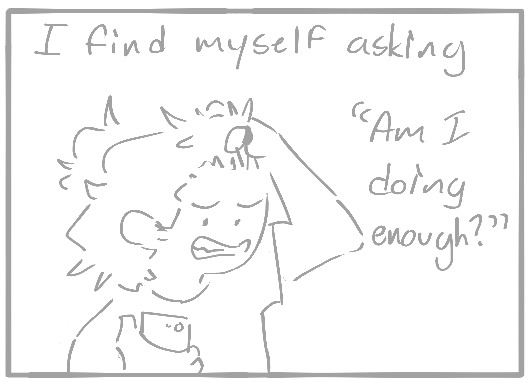
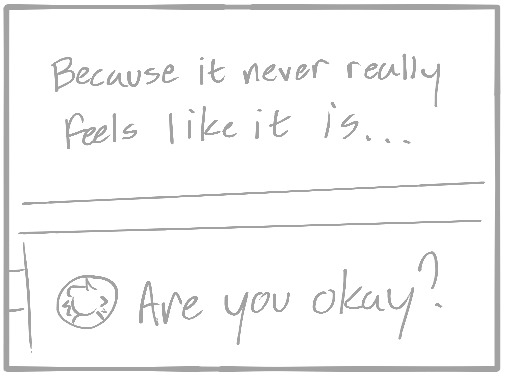


but I know I'll be okay.
75 notes
·
View notes
Text

how's it going fellow alexithymia-havers?
#dont worry i know you dont know how its going#actually autistic#autism#autistic#autism memes#affirmations#autism affirmation#adhd#adhd memes#spd#sensory processing disorder#audhd#alexithymia
993 notes
·
View notes
Text
How to Word THIS
I tried rewriting this post so many times. I'm going to try bullet points instead.
I think all of these are good/true:
From my experience as an afab person raised similarly to a boy due to my father wanting a boy, I can confidently say that the emotional suppression that men and boys experience on a daily basis is frankly, inhumane.
Parents shouldn't speculate their kid(s) gender/sexuality/etc just because their kid is showing certain behaviors/having certain interests that aren't stereotypical for their assigned gender.
Parents should allow kids space to explore gender/sexuality, but make sure not to push them into anything.
Parents should allow their kids space to explore gender/sexuality, but make sure that their kid is first and foremost SAFE and HAPPY.
Emotional suppression is expected of men/boys, but science agrees that emotional suppression is in short, BAD FOR YOU.
"Be a man" is often used as a slap in the face to keep men/boys in line. You can imagine this isn't ideal if a boy is reporting bullying in school or a man is trying to bring up unsafe working conditions.
A lot of women have trauma about men (including myself), but this doesn't mean that a whole marginalized group should be excluded from sports (We're not going to re-segregate sports just because some people have trauma related to black people, are we?)
Men & boys' emotions should not only be accepted but ENCOURAGED!
Black men's emotions have been demonized for CENTURIES. Make sure to raise an eyebrow when you hear a black man experiencing anger described as "animalistic" or described with any other dehumanizing language.
Stop expecting men to do things you don't expect women to do! If you don't expect women to chase CEO positions, don't ask why a man isn't a CEO yet! Just like how you shouldn't expect a woman to be a wife and mother by 25 if that's not what you're expecting of men. And if you are having those kinds of standards then maybe lower them because both sides and both genders are extremely unrealistic!
Men aren't given the tools to describe their emotions! If you are wondering what a man thinks about a topic, a decision, etc, give them time to respond and let them know they have time to think! Give them time to think about their answer. If they want (ASK) you can offer an Emotion Wheel or a few (metaphorical) Mad Libs for them to start their answer with.
Alexithymia (also known as emotional colorblindness) is a phenomenon when someone has trouble describing their emotions. They feel all their emotions normally, but they struggle describing them or giving them detail.
Normative Male Alexithymia is a type of Alexithymia. It is called "Normative Male..." because in a lot of cultures (specifically western cultures) it is normal for men to suppress their emotions to the point of having trouble recalling names of emotions or describing them in detail when asked.
Alexithymia/Normative Male Alexithymia is a BIG reason why a lot of men struggle in therapy. It is also the reason why I, myself struggled (to communicate my thoughts) in therapy. Because I was raised to suppress my emotions and not communicate my thoughts.
I truly believe that if my upbringing was even a HINT a SLICE a BREATH a WHISPER a TINY BIT of what the average boy's upbringing is like, then our collective, societal treatment of men and boys is inhumane and inexcusable.
I know any boy or man that makes a post even hinting something like this would be attacked. This isn't me being a pick-me, this is me telling you that my dad was prepared to raise boys, he got girls, and I got a VERY different perspective because of it. I'm telling you right now that if how I was treated was even a hint of what the average boy gets growing up, then we owe men an apology. I'm not joking. This is not satire.
People talk about intersectionality, but rarely actually NAME boys and men as being a part of the discussion (unless they're the "villain"). I think we should do so more often. They are ALSO getting the short end of the stick. (Expecting to be part of an "Atom Family" and work ALL DAY??? NO THANKS)
#lgbt#lgbtqia#lgbtq#lgbtq+#queer#trans rights#nonbinary#intersex#intersectionality#genderqueer#gender#politics#us politics#world politics#feminism#mental health#alexithymia#normative male alexithymia#unrealistic expectations#suppressing emotions
134 notes
·
View notes
Text
alexithymic autistic culture is not realising how close you are to hitting sensory overload until you leave the situation and immediately deflate
#if that makes sense#autism#alexithymia#did not realise how overwhelming work is until I got home and felt. hmm. dead. but also like crying but also weirdly peaceful#this probably also applies to anyone who has the combo of alexithymia and sensory difficulties
244 notes
·
View notes